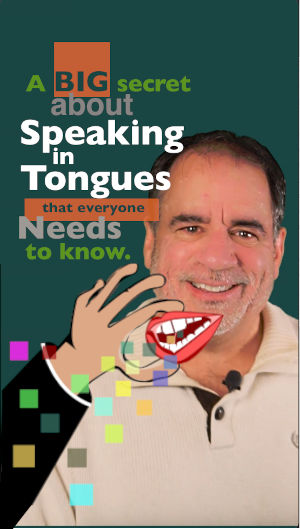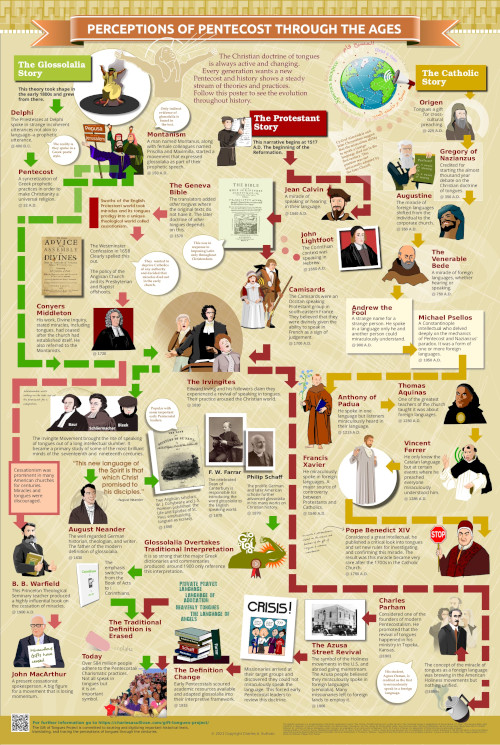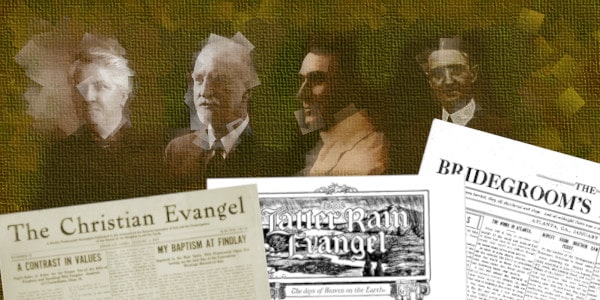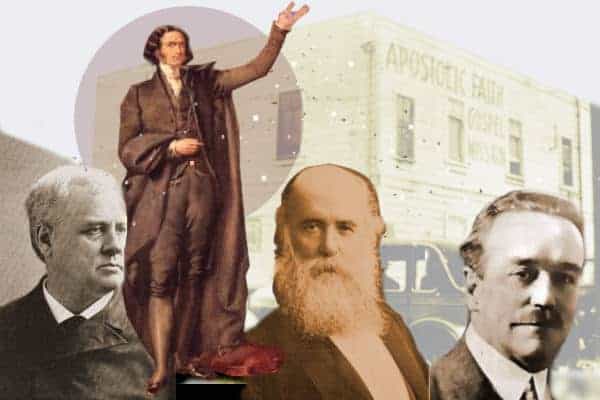The biggest lesson I learned studying the Christian doctrine of tongues in a 90 second video.
Tongues
Hildegard of Bingen and Her New Language
The myth or reality of Hildegard of Bingen speaking in tongues.
Hildegard of Bingen was a remarkable twelfth-century German abbess–a rock star in her time. She even invented a primitive language for her convent. Was it glossolalia, speaking in tongues, singing in tongues, or jubilation?
She is a figure whom some academic Pentecostal whisper support. They allude that Hildegard was part of a tradition passed to them.
An examination reveals that her speaking or singing in tongues or similar rites is a myth. It has nothing to do with ecstasy and everything about her intellectual creativity. She did invent a primitive language, but it was not glossolalia.
Of course, readers of the Gift of Tongues Project won’t accept such a brief explanation. A more detailed description follows.
Table of Contents
Perceptions of Pentecost Through the Ages
An infographic that outlines the history of Pentecost from inception until today.
The graphic contains the significant four streams of thought throughout the centuries: The Catholic, Traditional Protestant, Conservative Protestant, and the Glossolalia Stories.
There is a dominant assumption that speaking in tongues died out in the early church and then reappeared with the Pentecostal awakening in the late 1800s/early 1900s. Not true. Almost every generation has wanted to claim Pentecost for themselves throughout history.
See the following paths of tongues through the centuries for details.
Utterance Versus Gift of Tongues
An analysis of early Pentecostal theology and their distinction between utterance and the gift of tongues.
This article is an addendum to Solutions to the Pentecostal Crisis. An exploration about why early Pentecostals changed the definition of tongues. One from miraculously speaking a foreign language to an alternative version.
Jansenism and Christian Tongues
A detailed look at the Jansenist connection to the Christian doctrine of tongues.
Any reader who has familiarity with the Christian doctrine of tongues will eventually come to the topic of this 18th-century French movement. They are only a small notation in the debate, but like all others, needs a critical look. Many historical claims of groups or persons speaking glossolalia, tongues, xenolalia, or similar are typically under-investigated.
Previous research and articles categorized under the Gift of Tongues Project has revealed many inaccuracies and dispelled large generalizations on many movements. The Jansenists also fit within the framework of unsubstantiated claims.
This article aims to uncover the source(s) regarding the Jansenists with an analysis of various third-party commentaries on the subject.
The Irvingite Influence on Pentecostalism
Examining the influence of the Irvingite movement on the birth of Pentecostalism.
The London-based Irvingite movement revived the supernatural expressions within the church body and inspired a new framework for Christian living that reverberated throughout the Western world.
It makes one wonder, if there was no antecedent of the Irvingites in the 1830s, would there have been a Pentecostal movement?
Ambrosiaster on the Tongues of Corinth
The Ambrosiaster Latin text with its beginnings in the fourth-century gives insight and much-needed clues on the mystery tongues of Corinth.
The Ambrosiaster author(s) believed Paul was describing the adoption of a synagogue rite. It consequently led to the misuse of Hebrew and Aramaic to an audience that did not understand these languages. There was no awareness of ancient Pythian prophetesses, ecstasy, Montanists, or glossolalia. Nor was there an association with speaking in tongues as a sign of a true believer.
A History of Pentecost as One Sound and Many Languages Heard
A history of Pentecost being the miracle of one voice emitted and the sounds converted into a relevant human language while in the air or in the minds of the hearers.
This theory was a part of the christian doctrine of tongues that existed at least in the third century, worked its way into the seventh, and has a spotty appearance after this time.
The following is the result of collating, compiling, examining, researching and comparing a wide-range of Patristic authors, a sampling of Jewish literature, and a small dose of classical Greek writings found on the topic.
The Mind and World of Edward Irving
The influences and world that shaped Edward Irving—an important Pentecostal forerunner.
The mystery behind Irving and his world has created many different portraits. A mad man, an entertainer, an image of Scottish national pride, and a pentecostal pioneer, are some of the diverse opinions displayed. These options are under investigation as we look to discover the man behind the pulpit.
Some of his views and behaviors, even by today’s standards, are controversial and oft-putting. On the other hand, Irving and his followers were mystics, and Britain took a fancy to it. How could an Empire so steeped in Calvinist rigorous living, Methodist structures, and Anglican strictures, even entertain such features?
Edward Irving’s Defense on Unknown Tongues: Part 3
A digitization of Edward Irving’s third defense in Fraser’s Magazine on his promotion of unknown tongues. Reverend Edward Irving and his central London congregation (1830s) were the center of world-wide religious attention on the topic and practice of speaking in tongues. The result was that he received heavy criticism from a variety of sources. Irving …






